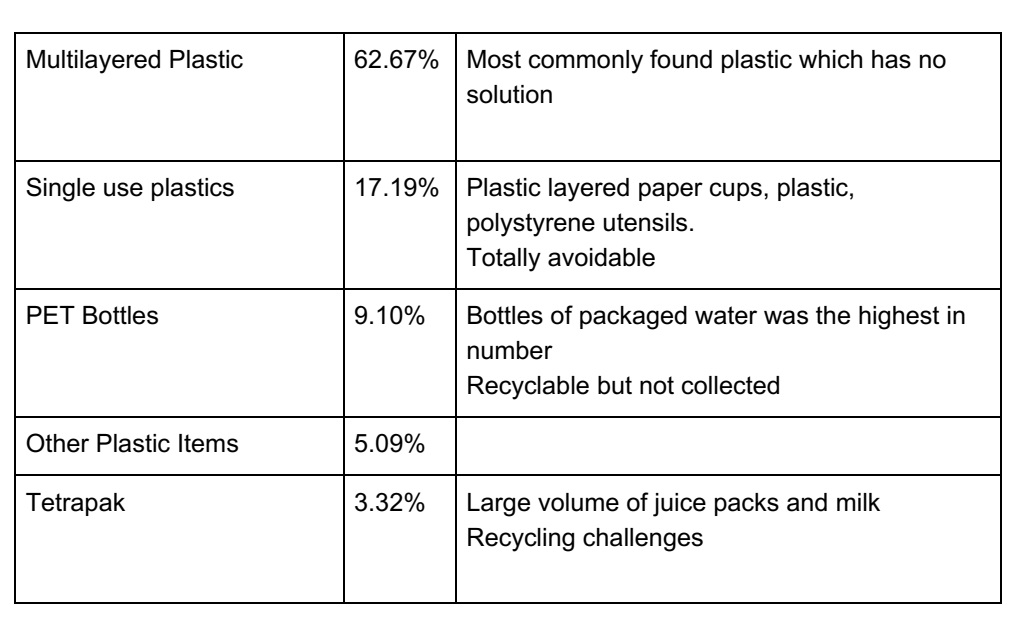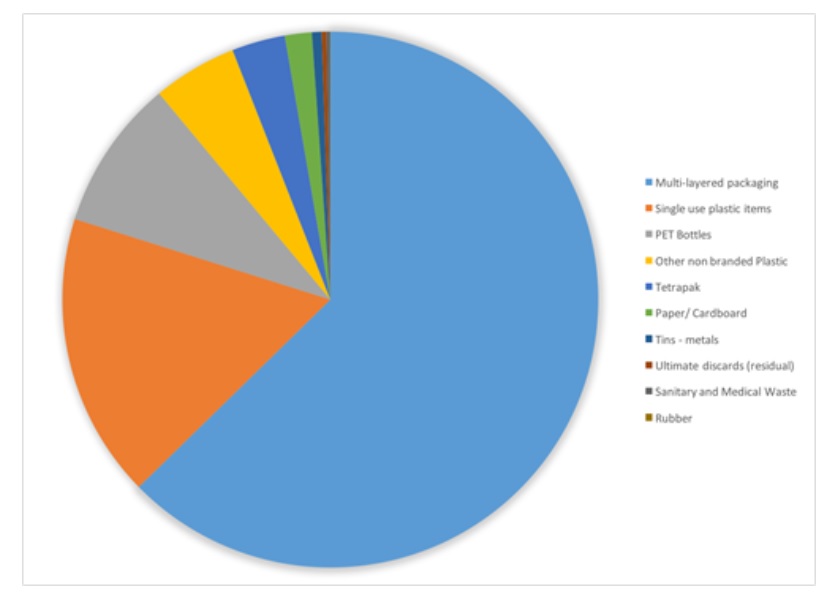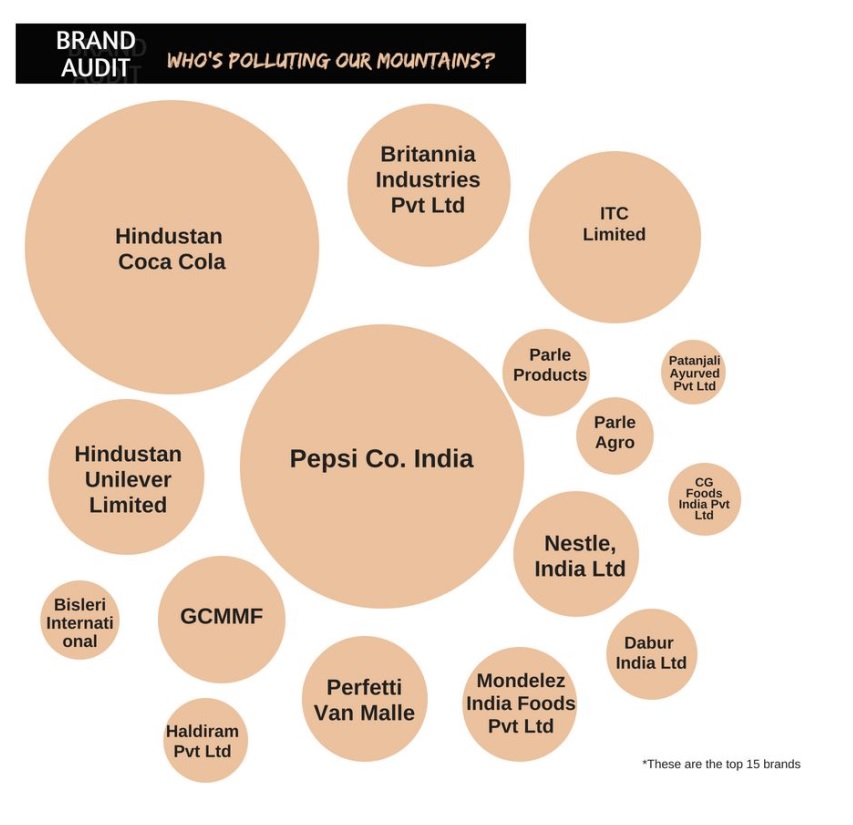
In Darjeeling most waste cannot be processed locally
Taking the question of who is responsible for the waste, the Himalayan Cleanup included a brand audit which was conducted in collaboration with Global Alliance for Incinerator Alternatives -GAIA’s national brand audit which has covered 10 cities in India. The brand audit reveals the top brands that are polluting our mountains and demands that the brands take responsibility for the waste through Extended Producer Responsibility mechanisms. The Himalayan Cleanup shows that the top 15 plastic polluters are:

Darjeeling Waste composition as recorded in the audit
The Himalayan Cleanup recommends Mountain Policies to stop single use plastics and to phase out multilayered plastic. Extended producer responsibility especially for multilayered plastic, PET and tetrapak is of utmost necessity. No incineration/burning of waste in the sacred and ecologically sensitive Himalaya is also an important recommendation, for the Himalayan states, where burning is seen as the most common solution. Tourism and defense which have large waste footprints in the mountains need to be integrated into waste management systems. Special resource support to the mountain states needed considering the challenges of geography and connectivity.
Member of Parliament from Sikkim, Shri P D Rai, who delivered the keynote address at the event spoke about the urgent need to address the issue of plastic pollution in the mountains, and that local and regional policies must be strengthened to bring about sustainable waste management.
The Himalayan Cleanup was anchored together by the Integrated Mountain Initiative and Zero Waste Himalaya. IMI works across the 12 mountain states on issues of mountain policies and advocacy. Zero Waste Himalaya is a platform of organisations and individuals that advocates for sustainable waste management practices in the HImalayan region based on principles of zero waste. The group has been actively working across the Sikkim Darjeeling landscape with the relevant government institutions, and also on building a volunteer base with an outreach to schools and colleges. The Zero Waste Himalaya group has been working on waste issues for the past 10 years, and the theme of beat plastic pollution for World Environment Day provided the right opportunity to voice the concerns and challenges of waste in the mountains to a larger audience.
A workshop organised by IMI, ZWH and RMDD on ‘Envisioning Sustainable Waste Management Pathways for the Indian Himalayan Region, May 11 and 12, 2018 at Gangtok paved the way for The Himalayan Cleanup with the participation of 12 mountain states, where the planning for the cleanup was done. The workshop highlighted that mountain states currently had little or no waste management, and the most common practice was to transport and dump, and burning of waste. Mountain specific management issues and policies on waste was also deliberated upon during the workshop, and how zero waste practices could be embedded into the planning processes.






Leave a comment